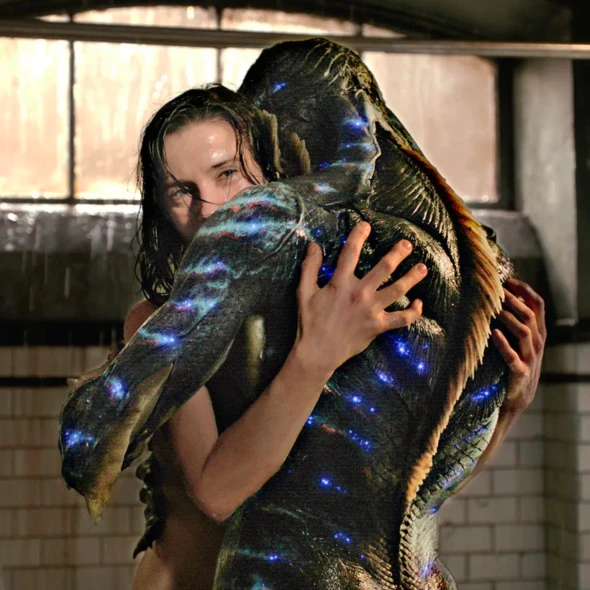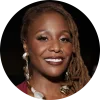
Nikyatu Jusu's path to picking up the camera was fortuitous, albeit circuitous. "I actually went to undergrad for biomedical engineering." A chance screenwriting course changed everything for her, and she instead got her degree in film before moving on to the graduate film program at NYU's Tisch School of the Arts. Still, "I think to some degree that scientific element, it lingers in my work."
In her filmmaking, Jusu is drawn to fantastical worlds rooted in our own. Yet, she was quickly made aware that, as she explains, "Black women filmmakers mostly work in drama. It's one of the cheaper genres. I think a lot of filmmakers get shut out of fantasy because we're not given the budgets to play in the way that some filmmakers are." But Jusu defied the odds.
Her feature debut is Nanny, a horror fable rooted in Jusu's experience as the daughter of Sierra Leonean immigrants and inspired by the folklore of West Africa. Anna Diop stars as Aisha, a Senegalese immigrant who takes a job nannying for a wealthy white family in New York City. Another version of Nanny might be played as just a social-issue drama, but in Jusu's hands, it is also imbued with the myths of the African diaspora, as Aisha endures microaggressions and otherworldly spirits alike. "Every penny that we got is on the screen," says the director.
And again, Jusu defied the odds. Nanny premiered during this year's Sundance Film Festival, where it won the Grand Jury Prize in the U.S. Dramatic competition. She is only the second Black woman director to receive that honor, and the first horror director to do so.
"They say don't do animals and kids for your first feature. I had animals, kids, VFX — I am insane, but obviously that insanity paid off," she says now. "I love creating things that we haven't seen in live-action. I want to establish myself as a filmmaker who's centering non-traditional protagonists in these fantastical worlds."
In looking to the future, Jusu is also informed by what came before her.
"In no particular order, my five favorite filmmakers right now," she says. Yet, as she arrived at the end of her list, she protested, "It's hard for me to pick only five! I feel like I'm offending the rest of the canon!" And so, below, Jusu shares with A.frame her six favorite filmmakers right now. "I've never been good at following rules."
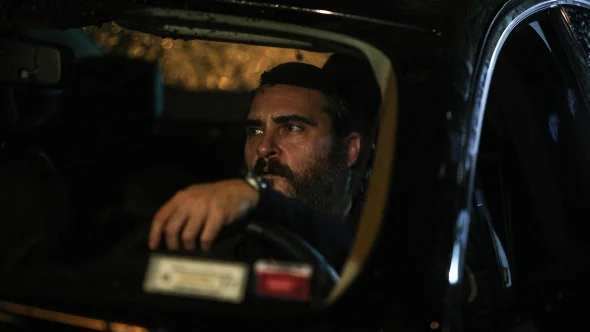
Directed by: Lynne Ramsay
Most of my influences are non-American filmmakers, because I think that they get a lot of more permission to be cross-genre in their work and not be pigeonholed into one genre, which is the way that I like to work. But Lynne Ramsay's attention to soundscape has always really been a north star for me, in terms of thinking about sound as a character in itself and as a microcosm of the film and something not to simply be thought about at the end of the process in post. I love the ways that she utilizes silence as a sound. But juxtaposing those moments with really loud sounds or something really dissonant from the previous scene in terms of soundscape and visuals. And when I say "silence", I don't mean completely devoid of sound. I mean not utilizing music and score to manipulate the audience, but allowing moments to breathe.
I also love the ways that she navigates interiority and violence, because every facet of violence doesn't need to be seen. You don't need to see a man get bludgeoned to death. You can literally just see the blood splatter on the wall as someone is getting bludgeoned to death, and that is a really creative way into violence. You Were Never Really Here with Joaquin Phoenix, that's her latest example. But from Ratcatcher on, I think her canon is just brilliant.
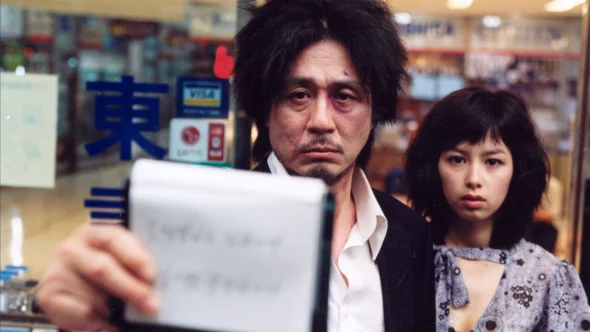
Directed by: Park Chan-wook
My entry point into his work was through Old Boy and The Vengeance Trilogy. You're going to notice a trend with violence in the work that I gravitate to, which probably is a little bizarre to people as a woman filmmaker. But I find violence to be an inherent part of our culture, but something that not a lot of filmmakers execute artfully. I love the way that Park Chan-wook navigates violence, but also interiority and character study, so meticulously and so stylistically. Like, The Handmaiden was so brilliant.
You never really know where his films are going. But also, he pays such attention to detail in terms of production design and patterns and texture and color palette. Again, it's cross-genre work. In one Park Chan-wook film, you'll have a family drama, a love of affair, a horror, dark comedy, just so many genres in one.
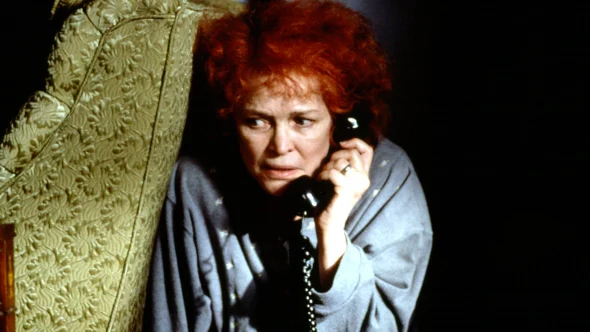
Directed by: Darren Aronofsky
I've had the luxury of meeting Darren Aronofsky in person — we both won an award at the Austin Film Festival recently, which was nuts — and he is really nice and smart. I remember stumbling onto Requiem for a Dream in undergrad and being like, "What?!" He's one of the few American filmmakers that I think has a really international sensibility in his work, which is a compliment. It feels cross-genre. I love the way that his films feel like sensory overload at all times. You know a Darren Aronofsky film, when you see it.
Also, all of these filmmakers that I've listed so far — Lynne Ramsay, Park Chan-wook, Darren Aronofsky — even though they're super stylistic filmmakers, they pay so much attention to character study and developing a character from the ground up. And no matter how sexy the film is, there's still a fulfilling character arc with the protagonist.
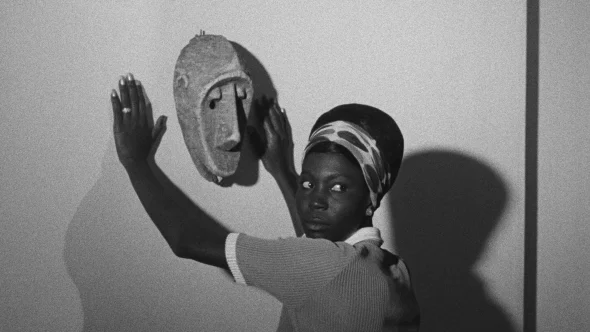
Directed by: Ousmane Sembène
Ousmane Sembène is Senegalese filmmaker and a really political filmmaker. He really centered Africanness in his work at a time when African filmmakers were not getting the freedom to make work that centered Africans. I think his sensibilities were perceived as being very European, but he's made it very clear that although he studied film internationally, his work is very African. I love his African pride and the ways that he focuses on women protagonists, because he values womanhood and he values the matriarchy and he understands that women are the foundation of every culture. He made a film called Black Girl that influenced Nanny a little bit.
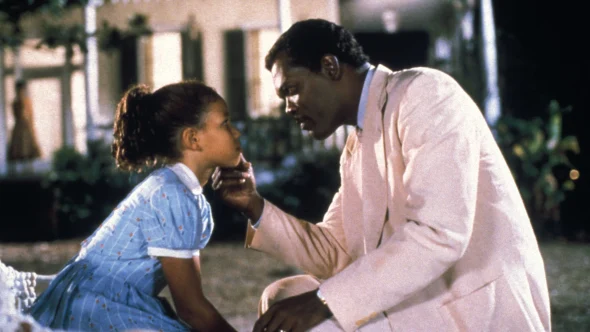
Directed by: Kasi Lemmons
Eve's Bayou was the first time that I saw a film with Black leads and Black women leads that was culturally specific folk horror, like American gothic Southern horror that leaned into voodoo and leaned into Black diasporic spirituality. Her first feature was brilliant, and I had the luxury of having Kasi Lemmons as a mentor in the Sundance Labs, which was full circle. And now she teaches at NYU. When I went to NYU for grad film, she was not teaching there, which me pisses off because I felt like I would've gotten my money's worth even more! I got the one on one, which makes up for my student loans just thismuch. But she's just so smart about character development and utilizing culturally specific folklore in her work.
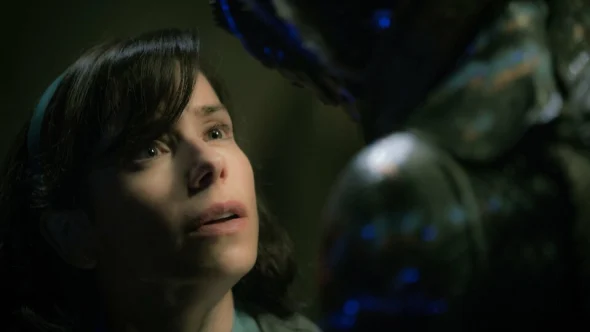
Directed by: Guillermo del Toro
His approach to creature creation is brilliant and informs my own work as a filmmaker who definitely wants to stay in fantasy. He approaches creatures as human with humanity, and I've gone down the rabbit hole of some of his interviews, and I love the ways that he peels back the layers of darkness in our humanity through his approach to creature creation. He pulls from nature to think about movement, to think about texture. There's so much that exists in the world around us as in inspiration for creating monsters, that you really don't have to look too far. I love digging into the ways that he thinks about monsters and creatures and approaches them in the ways that he would approach a human protagonist, which is evident in The Shape of Water most clearly.
Those are the eclectic bunch that popped in my head.

